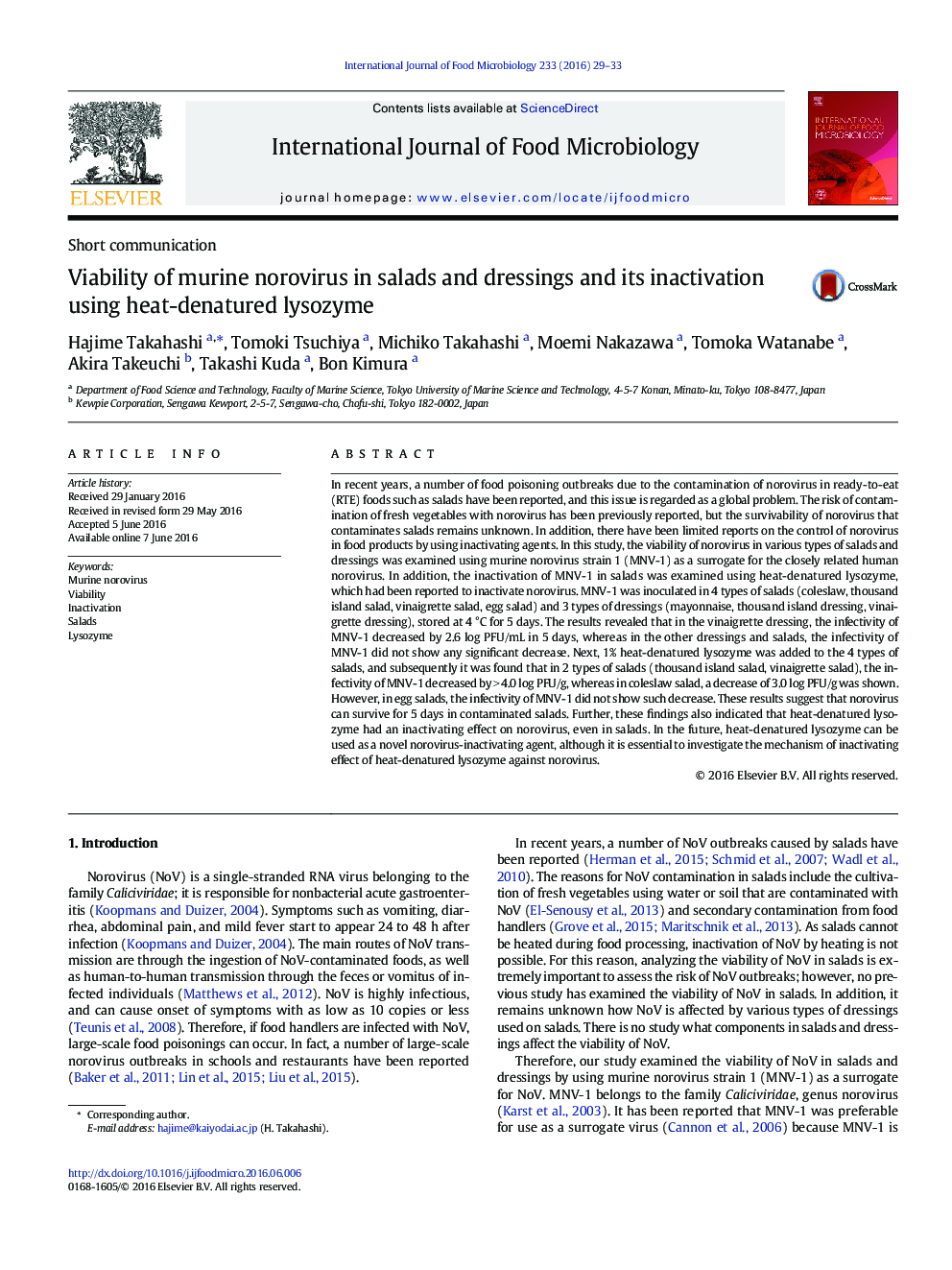| کد مقاله | کد نشریه | سال انتشار | مقاله انگلیسی | نسخه تمام متن |
|---|---|---|---|---|
| 4366186 | 1616550 | 2016 | 5 صفحه PDF | دانلود رایگان |
• Murine norovirus survived for 5 days in salads and dressings.
• Heat-denatured lysozyme had an inactivating effect on murine norovirus in salads.
• Heat-denatured lysozyme could be useful as an inactivating agent against norovirus.
In recent years, a number of food poisoning outbreaks due to the contamination of norovirus in ready-to-eat (RTE) foods such as salads have been reported, and this issue is regarded as a global problem. The risk of contamination of fresh vegetables with norovirus has been previously reported, but the survivability of norovirus that contaminates salads remains unknown. In addition, there have been limited reports on the control of norovirus in food products by using inactivating agents. In this study, the viability of norovirus in various types of salads and dressings was examined using murine norovirus strain 1 (MNV-1) as a surrogate for the closely related human norovirus. In addition, the inactivation of MNV-1 in salads was examined using heat-denatured lysozyme, which had been reported to inactivate norovirus. MNV-1 was inoculated in 4 types of salads (coleslaw, thousand island salad, vinaigrette salad, egg salad) and 3 types of dressings (mayonnaise, thousand island dressing, vinaigrette dressing), stored at 4 °C for 5 days. The results revealed that in the vinaigrette dressing, the infectivity of MNV-1 decreased by 2.6 log PFU/mL in 5 days, whereas in the other dressings and salads, the infectivity of MNV-1 did not show any significant decrease. Next, 1% heat-denatured lysozyme was added to the 4 types of salads, and subsequently it was found that in 2 types of salads (thousand island salad, vinaigrette salad), the infectivity of MNV-1 decreased by > 4.0 log PFU/g, whereas in coleslaw salad, a decrease of 3.0 log PFU/g was shown. However, in egg salads, the infectivity of MNV-1 did not show such decrease. These results suggest that norovirus can survive for 5 days in contaminated salads. Further, these findings also indicated that heat-denatured lysozyme had an inactivating effect on norovirus, even in salads. In the future, heat-denatured lysozyme can be used as a novel norovirus-inactivating agent, although it is essential to investigate the mechanism of inactivating effect of heat-denatured lysozyme against norovirus.
Journal: International Journal of Food Microbiology - Volume 233, 16 September 2016, Pages 29–33
